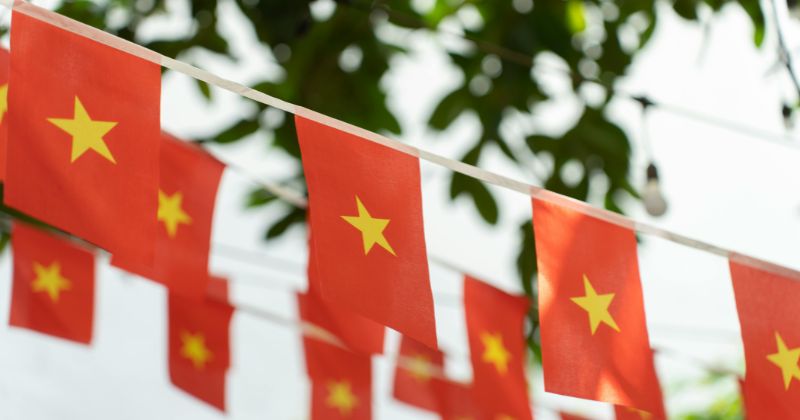Vietnam Company: New Ultimate Beneficial Ownership Regulations
- Date: October 6, 2025
With one of the best market growth over the past few years, Vietnam aimed at enhancing corporate transparency and combating illicit financial activities.

With one of the best market growths over the past few years, Vietnam aimed at enhancing corporate transparency and combating illicit financial activities.
With taking effect on 1 July 2025, the Law No.76/2025/QH15 amends the Law on Enterprises (the “Amended LOE”) by introducing a proper and detailed architecture for identifying, documenting, and reporting ultimate beneficial owners in Vietnamese enterprises which details are taken through “Decree” and “Circular”.
1. What is an Ultimate Beneficial Owner?
According to the Amended LOE, Ultimate Beneficial Owners (“UBO”) of a company are natural persons “who (i) have actual ownership of the charter capital or (ii) have the right to control the enterprise”. This determination relies on two independent and non-cumulative legal conditions detailed in the Decree:
- The ownership, whether directly or indirectly through intermediary entities, of 25% or more of the company’s charter capital or voting right; or
- The control, whether directly or indirectly through nominee arrangements, of one of the following decision:
- the appointment, dismissal or removal of a majority of the management board;
- the appointment, dismissal or removal of the chairman of the members’ council or the management board, the legal representative or the general director;
- the alteration of the company’s charter;
- the changes to company’s organizational and managerial structure; or
- the reorganizations or dissolution of the company.
2. Which Entities are subject to the New UBO Rules?
The new UBO rules contained in the Amended LOE apply to companies that possess legal person status under Vietnamese law. This includes:
- Single-member limited liability companies (SMLLCs);
- Multi-member limited liability companies (MMLLCs);
- Joint-stock companies (JSCs);
- Partnerships and other corporate entities formally registered in Vietnam.
Wholly state-owned companies are governed by separate disclosure frameworks and are partially exempt from some BO reporting obligations.
3. What are the obligations set out by the New UBO Regulations?
From 1 July onward, the disclosure of such information must be done at the incorporation of a new company or, for existing companies, at the time of any change registered with the Business Registration Authority (BRA). Any change of UBO in a company must be reported within 10 calendar days of such change.
For each UBO, the Amended LOE requires companies to disclose the full name, date of birth, gender, nationality, ID document and contact address.
It should be noted that the legal representatives of the companies are personally liable for the accuracy of UBO filings and must cooperate with governmental authorities. Indeed, tax, customs, anti-money laundering and other regulatory authorities must be able to access to UBO details from the BRA.
Vietnamese companies must maintain an up-to-date list of all UBO, whether physically or electronically, for the company’s existence and 5 years thereafter.
4. What are the Sanctions and Enforcement Mechanisms?
The Amended LOE lacks sanctions regime specifically targeting violations of UBO obligations.
Nevertheless, general penalties under administrative law may apply, such as fines ranging from VND 20 million to VND 30 million. Without more precision, it remains possible that the Ministry of Finance releases release detailed penalties in relation to UBO regulations in the next few months.
5. What are our practical observations and Final Though?
Based on our international practices, certain points may be challenging for companies and remains to be clarified in respect of the UBO regulations:
- The new UBO regulations may be invasive for certain shareholders who may refuse to cooperate for the disclosure;
- The characterization of UBO “by control” does not consider the fact for a shareholder to have veto powers, informal influence (family, friendship, soft-power, etc.) or the case of joint control (voting arrangement, etc.), and may be even more complicated when it involves complex structures/arrangements established out of Vietnam;
- The calculation of the 25% to determine a UBO “by ownership” is not detailed and may be challenging when it involved a chain of ownership with different participation.
Vietnam companies should proactively review their ownership structures and implement practical procedures to track the UBO information such as a dedicated personnel, but also ensure externally the cooperation of the shareholders through the implementation of relevant provisions in their charter or shareholders’ agreement.
From now on, the compliance with the new UBO regulations will be a supplementary matter to be considered for purchaser in the legal due diligence when anticipating investment, mergers or acquisition of a Vietnamese company.
For more information, do not hesitate to contact us.
Share this article
Inquiry Box
Request a Consultation. We'll respond within 12 hours.
Related Articles
Australia Introduces the National Innovation Visa (NIV): A New Pathway for Exceptional Talent
As of 6 December 2024, the Australian Government unveiled a major reform in its migration policy by launching the National...
Read MoreNon-Compete & Non-Disclosure Agreements in Vietnam: What Foreign Investors need to Know
Vietnam has become a key destination for foreign investment in manufacturing, services and technology.
Read MoreFriedland Law Partner Thomas Wong on The Golden Quarter Show: U.S. Families Looking Abroad and the Rise of Asia
As global mobility continues to evolve, more American families are exploring opportunities beyond their borders
Read More


